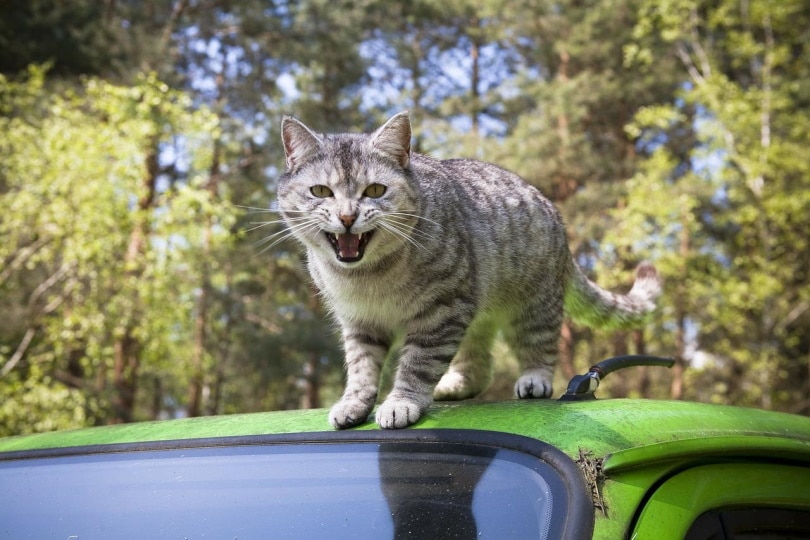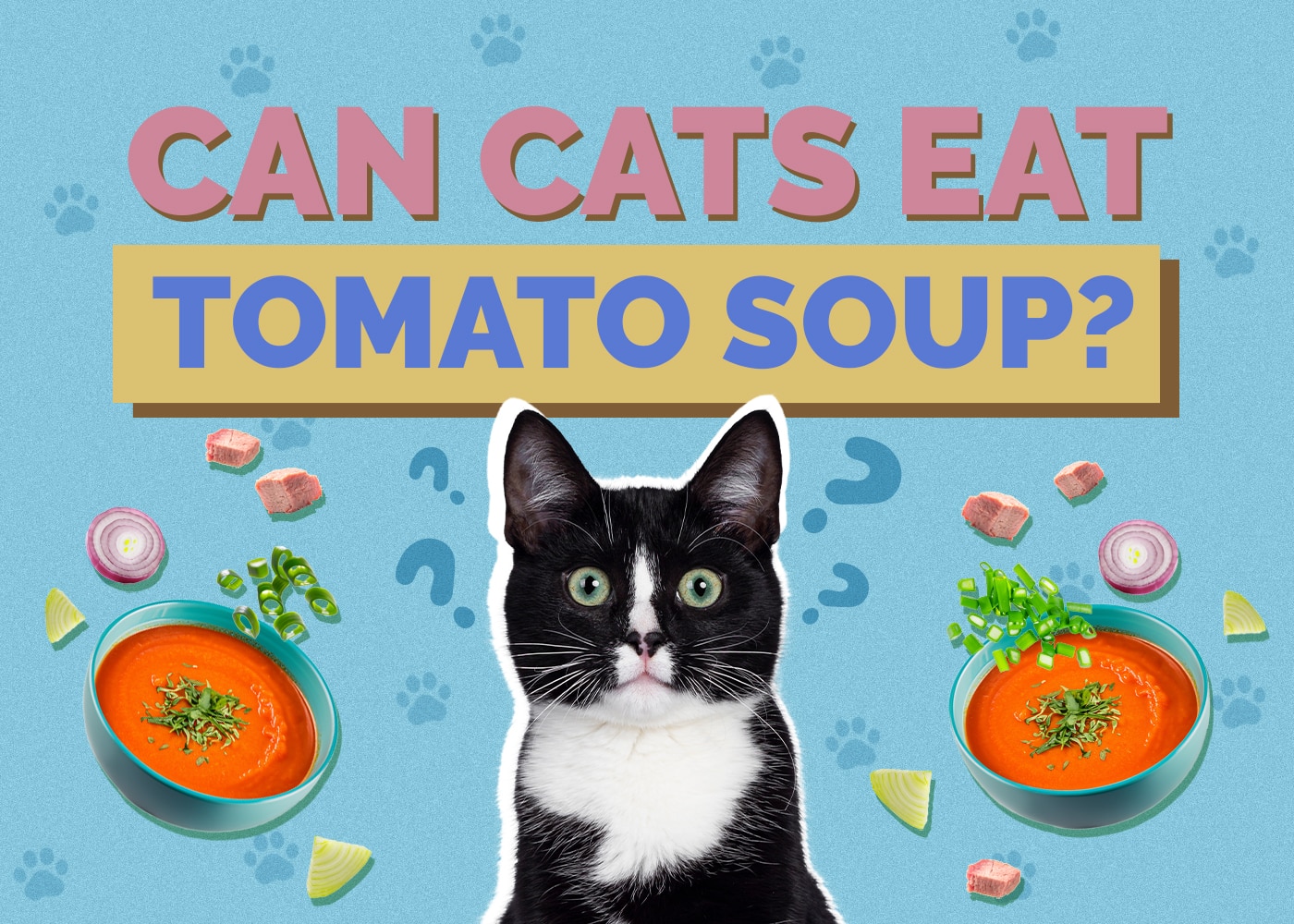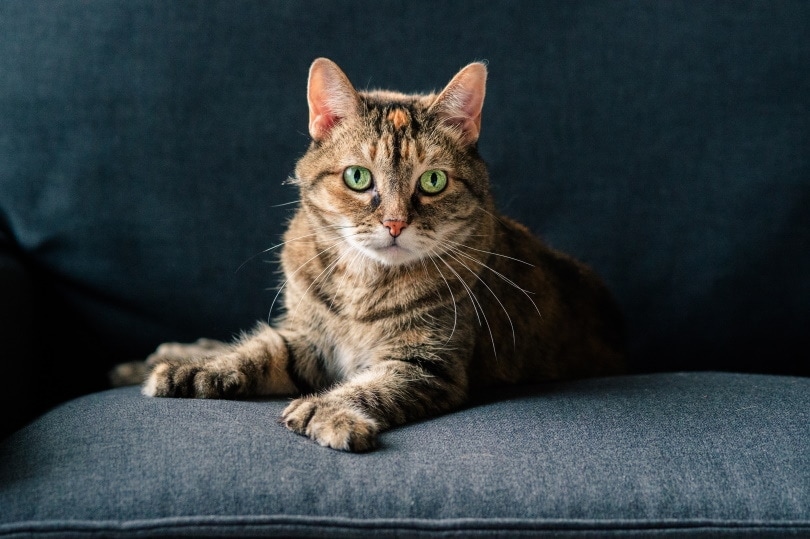Why Do Cats Like Milk? 3 Likely Reasons
Updated on
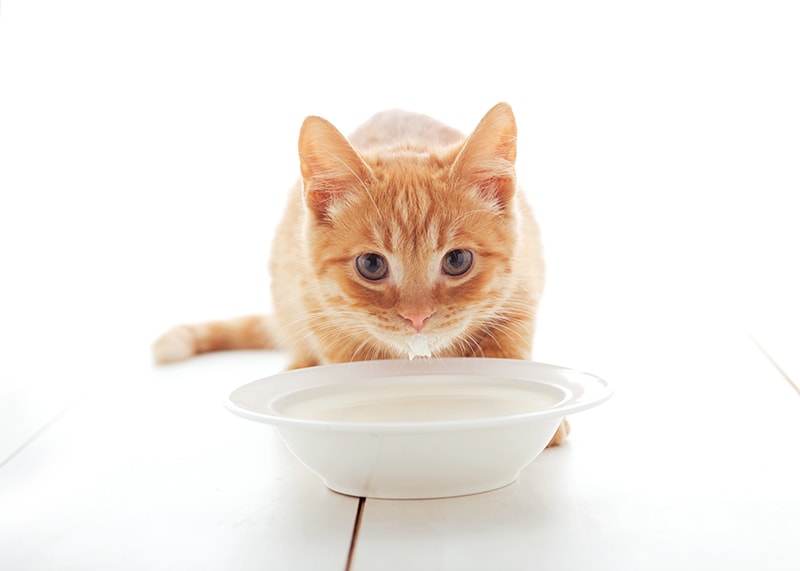
Most cats are lactose intolerant, which means they can’t drink milk without getting an upset stomach afterward. So, why does your cat keep trying to lick the last drops from your glass of milk? Let’s explore three likely reasons that kittens seem to enjoy dairy so much.
The 3 Reasons Why Cats Like Milk
1. They Simply Love the Smell and Taste of Milk
Milk is high in fat and protein, which makes it smell and taste delicious—at least, according to your feline. While cats are known to have much fewer taste buds compared with us humans, they make up for it with their amazing sense of smell. The combination of good smell and taste means cats are keen on dairy without realizing the stomach trouble it may bring later.
2. They Find Milk Comforting
Although cow’s milk doesn’t taste exactly the same as cat’s milk, felines may associate drinking it with positive memories of their kittenhood. Cats have short-term and long-term memories1, just like humans do. It’s tricky to know what kind of association they’re making when drinking milk, but it’s likely tied to a comforting and reassuring memory.
3. They Use Milk to Quench Their Thirst
Many cats don’t tend to drink much water for several reasons. Their bowl may be dirty, or they may find standing water to be unappealing. Either way, they need fluids to prevent dehydration, and milk may be a more tempting option.
- Provide your cat with plenty of fresh water,refill bowls several times a day
- Place water bowls throughout the house away from food bowls. Cats prefer not to drink near their food.
- Most cats prefer wide, shallow bowls as they don’t like their whiskers touching the sides of their bowls2.
- Add wet food to your cat’s diet.
- Consider buying a cat water fountain.
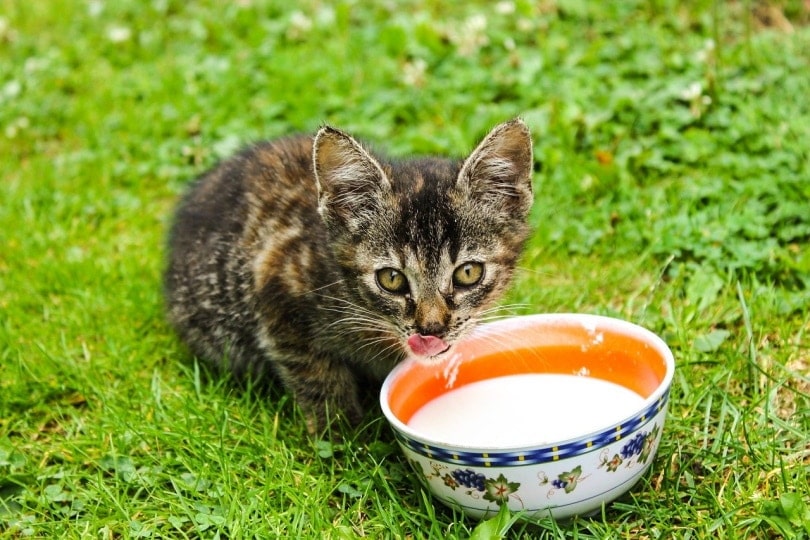
Why Can Milk Be Harmful to Cats?
There are several reasons that giving milk to cats is not recommended, both for kittens and adult felines.
First, cats are obligate carnivores, meaning their nutritional needs are only fully met by animal products. A diet of good-quality kibble or wet food will provide your cat with everything that their body needs3.
Second, cow’s milk (and goat’s and sheep’s milk) is too high in fat for cats. Drinking too much milk can lead to weight gain, along with all the consequences that this can have on your pet’s health. It can also decrease their appetite for their regular food, which can lead to long-term nutrient deficiencies.
Finally, most cats are unable to digest milk sugar (lactose) because they don’t have enough of an enzyme called lactase, which means they are lactose intolerant4. As a kitten, a cat produces high lactase levels in their body, enabling them to break down the lactose in their mother’s milk. However, their bodies produce less of this enzyme as they age, so milk sugar cannot be broken down efficiently.
The bacteria in the intestines feed on lactose and then ferment. These fermented bacteria are responsible for stomach aches and other digestive problems in lactose-intolerant cats.
What Are the Signs of Lactose Intolerance in Cats?
The inability to digest milk can lead to various gastrointestinal issues5 , including:
- Gas
- Bloating
- Vomiting
- Watery diarrhea
- Abdominal pain
- Itching/Irritation of the skin (in cases of allergies)
If your cat has been drinking milk and you notice these signs, contact your veterinarian.
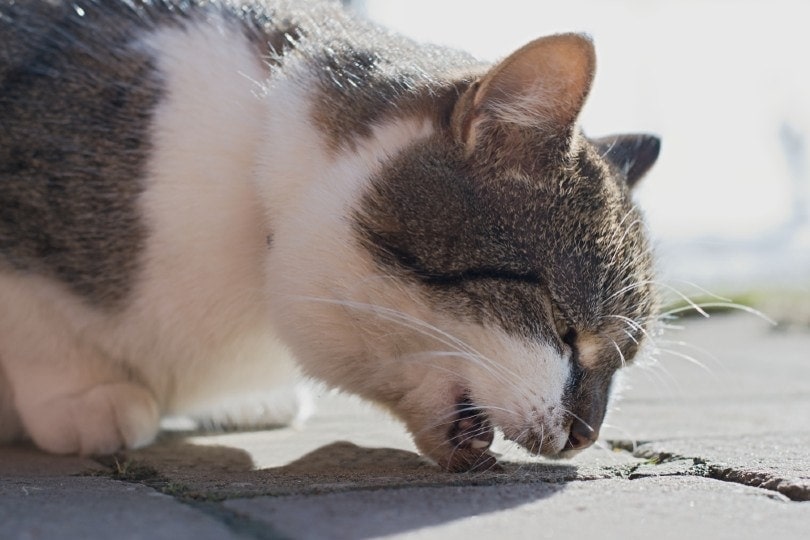
What’s the Difference Between a Food Allergy and Lactose Intolerance?
A food allergy is a reaction caused by the immune system to a specific protein found in food. Foods commonly associated with allergies in cats include beef, fish, chicken, as well as dairy products. Food allergies and intolerances can cause similar symptoms, although an intolerance more often causes upset tummies , while allergies more commonly cause itching and inflammation of the skin.
Either way, keep in mind that dairy products are not a healthy treat for your kitty.
Conclusion
Cats may be drawn to a saucer of milk for several reasons: its delicious smell and comforting taste, its high fat and protein content, or simple thirst. Regardless, your kitty doesn’t need milk to meet their nutritional needs once they reach adulthood and it may cause health issues such as stomach upsets.
If you can’t keep your cat away from your glass of milk, some cats do seem able to tolerate a few laps of milk as an occasional treat without any ill effects. Make sure it is no more than a teaspoon, that they otherwise eat a well-balanced diet and have access to fresh water at all times.
Featured Image Credit: Alena Ozerova, Shuterstock



